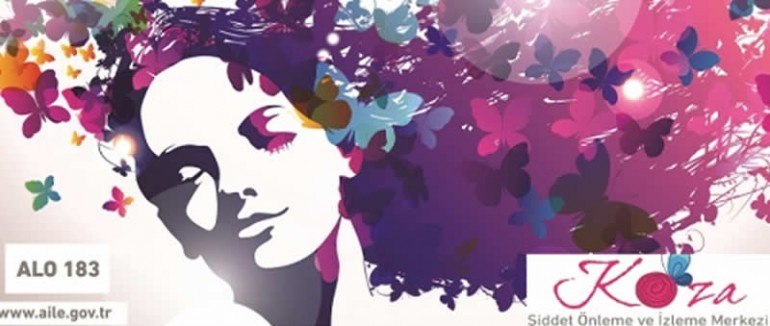With its growing economy and strengthening democracy, Turkey continues to take steps in the field of women´s rights. With regards to women managers, Turkey is above world average and above European Union countries. With regards to ratio of women in CEO positions, Turkey holds the second place in the world. Although the number of female MPs at Grand National Assembly of Turkey is below the targeted ratio, it was tripled in the last 10 years.
Since its foundation, Republic of Turkey was one of the pioneering countries in improving the political and social rights of women. Especially in the last 10 years, many reforms were made in this field. Tens of legal arrangements and practices, aimed at enhancing the role of women in professional and social life, were introduced. For the combat against violence against women, legal arrangements are made on one hand and deterrent practices and education projects are continued on the other hand.
Political Representation
While enfranchisement of women was implemented in 1934 in Turkey, women in many European countries such as France, Italy, Belgium, Switzerland earned this right years later.
While the ratio of representation at parliaments of women worldwide is 18% in average, this ratio increased to 14% in Turkey after 2011 elections. The number of female MPs at the National Assembly nearly tripled in the last ten years, and reached the highest number since 1934. Today, there are 79 female MPs at Grand National Assembly of Turkey, who took office with 2011 elections. In addition, 1659 women candidates were in the lists at 2009 local elections.
Work Life
According to Grant Thornton Research Report 2012 data, Turkey passed beyond the ratio of 17% in 2007, and currently reached 31% with regards to women managers. With this ratio, Turkey is above Brazil, Russia, India and China, called as BRIC Countries (26%), European Union (24%), Latin America (22%), G7 countries (18%), North America (21%) and world average. Hence, Turkey holds the eighth position in the first 40 countries. According to the results of the research, the main sectors that the women work as managers are finance, human resources and marketing.
According to "Global Gender Gap in Business 2010 Report" published by World Economic Forum, Turkey holds the second place after Finland with regards to ratio of women in CEO positions. While the world average is below 5%, the same ratio is 12% in Turkey.
There are tens of businesswomen such as Vodafone Turkey CEO Serpil Timuray, OMV Petrol Ofisi General Director Gülsüm Azeri, Şekerbank General Director Meriç Uluşahin, ING Bank General Director Pınar Abay, Abdi İbrahim General Director Candan Karabağlı among the names that manage the leading companies of Turkey.
With the legal arrangements made in Labor Law in 2004, the maternity leave was increased to sixteen weeks, eight weeks each before and after birth. In the past few days, Minister of Labor and Social Security Faruk Çelik announced that studies were carried out for increasing the maternity leave to twenty four weeks (six months) and for bearing the cost by the state.
With the amendments made in 2003, the right of "equal pay for equal work" was granted in order to prevent discrimination against women in business life and to ensure equal opportunities.
With the Prime Ministry Circular issued on May 25, 2010, "Women Employment Supreme Board" was established for strengthening the social and economic positions of women, for ensuring "equality of men and women" in business and social life, and for increasing the employment of women. The follow-up of the practices aimed at preventing gender-based discrimination was commenced.
According to the data of the Ministry of Family and Social Policies, while the labor force participation rate of women was 23.3% in 2012, this rate increased to 29.5% in 2012.
Aynur Bektaş, Chairperson of Women Entrepreneurs Board of Turkish Union of Chambers and Commodity Exchanges, stated that the number of women entrepreneurs who serve at chambers and commodity exchanges increased by 192% in the last few years, from 51 to 149.
Positive discrimination was adopted for female crafts and trades workers in "Employment Indexed Manufacturer Crafts and Trades Workers and SME Support Credit", and they were allowed to use a higher ratio of credit.
In 2012, 45.8% of the employed women were in service sector, 39.3% of them were in agriculture sector and 14.9% of them were in industrial sector; hence women, who participated in labor force intensively in agriculture sector as unpaid family workers for many years, are now being employed in service sector in line with economic growth.
Turkey aims to be in the first 10 economies of the world by 2023, and continues its efforts to increase women´s participation in labor force. On this course, "My Mother´s Job is My Future" project is being implemented with the cooperation of Ministry of Family and Social Policies, Ministry of Science, Industry and Technology and Borusan Holding, in order to strengthen the role of women in work life and to increase women´s contributions to economy. In the scope of the project, the nurseries and day care centers - to be opened at 10 organized industrial districts (OSB) in 10 provinces for 0-6 age group children - will facilitate the life of women who do not have the opportunity to work due to child care at home.
Education Life
The enrollment rate of girls increased significantly, thanks to the individual and family-oriented supports provided in recent years. For 2011-2012 education year, the enrollment rate reached 98.67%, the net enrollment rates of boys and girls were 98.77% and 98.56%, respectively.
350,000 girls were enrolled with "Girls to School" campaign carried out jointly by Ministry of National Education and UNICEF Turkey.
One million persons became literate with "Mother and Daughter at School" campaign, which was commenced in 2008 with the target of 3 million women above 15 becoming literate. The said campaign was selected as an example of good practice regarding education and social gender equality, in the evaluation made in 2010 by United Nations Development Program (UNDP) in the scope of Millennium Development Goals.
Struggle Against Violence Against Women
The recent combat of Turkey for preventing violence against women and for protecting the victims continues effectively. Turkey continues its successful improvement regarding women´s rights, both with legal and administrative precautions, and with various campaigns and projects aimed at achieving the mental transformation.
With the amendments made in Turkish Penal Code in 2004, the sentences prescribed for the crimes committed on grounds of honor were aggravated, harassment at work place was included in the scope of crimes, and marital rape became a criminal offense. In 2005, Investigation Commission for Honor Killings was established at Grand National Assembly of Turkey.
In accordance with the enacted Municipal Law No. 5393, the local governments with a population above 50 thousand were required to establish women´s shelters.
The Centers for Prevention and Monitoring of Violence were established, and the Ministry of Family and Social Policies was entrusted with the task of carrying out monitoring efforts aimed at the efficient implementation of protective and preventive measures for the prevention of violence.
ALO 183 Line, which provides consulting services for women exposed to violence, was opened.
The Ministry of Family and Social Policies commenced, with the cooperation of Ministry of Interior and General Directorate of Security, the pilot scheme for "Electronic Support System for Protecting the Victims of Violence", which contained Electronic Cuffs and Panic Button.
In November 2011, Turkey became the first country in European Council to sign and approve the European Council Convention prepared for preventing and combating violence against women and domestic violence (Istanbul Convention).
As well as legal arrangements, many projects aimed at social awareness and education of women were put into practice; for example, with "Mother, Father, Child Education Project", contact with families was established by means of panels, conferences, courses, and home and village visits regarding the matters related with family. In this scope, training was given on matters such as "domestic violence, family planning, honor killings, violence against women and child abuse".
Legal Rights
In Turkey, the principle of equality of men and women was strengthened with amendments made in articles 41 and 66 of the Constitution in 2001, with amendments made in articles 10 and 90 in 2004, and with amendment made again in article 10 in 2010. According to article 10 of the Constitution, "The men and women have equal rights. The State is responsible for putting this equality into practice."
With the amendment made in the Constitution in September 2010, it was stated that the precautions to be taken for protecting the rights of women, children, disabled and elderly are not contrary to the principle of "equality", and hence women were included in the scope of positive discrimination.
In addition, while article 41 of the Constitution contains the provision "The family is the foundation of Turkish community and it depends on equality between spouses"; with the legal arrangements made in Civil Law in 2005, the assets acquired during marriage were considered the common acquisition of the spouses and it was stated that the sharing of assets would be regulated according to this criteria after the termination of marriage.
In 2009, the "Men-Women Equal Opportunities Commission" was founded within the structure of Grand National Assembly of Turkey, for the first time in the history of Republic.
Sources: http://www.kdk.gov.tr/






